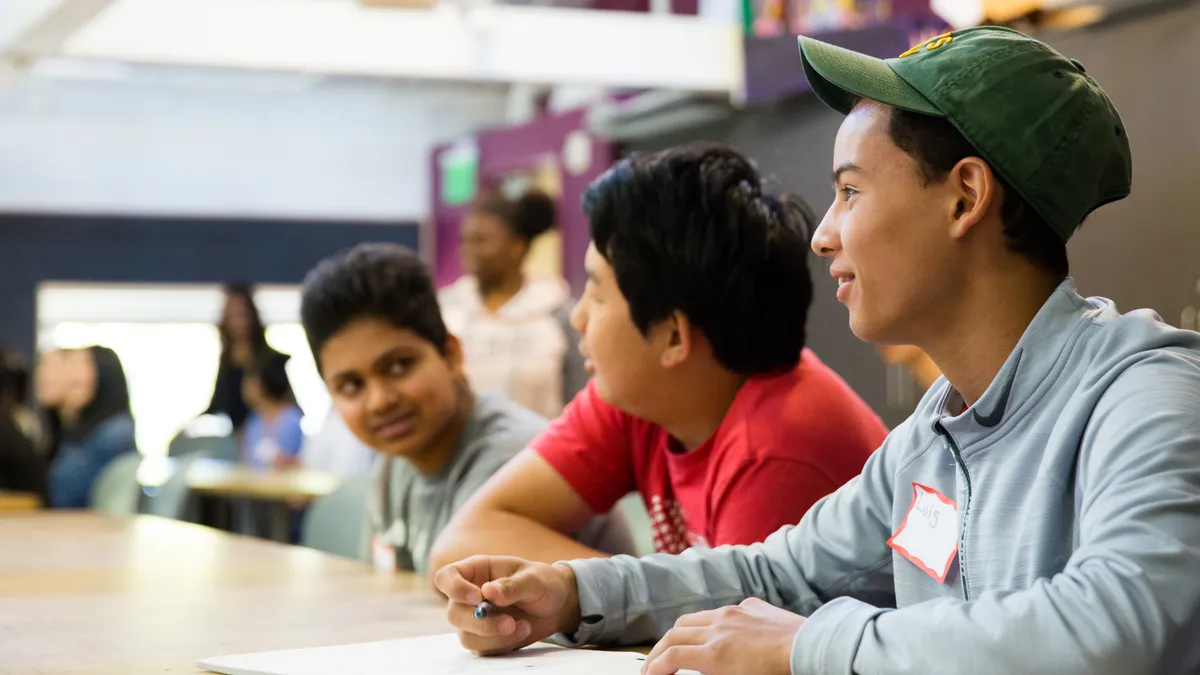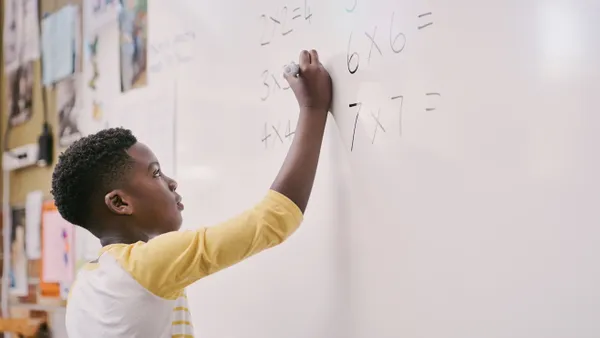Brief
- In an effort to improve student well-being and engagement, one high school turned to leading SEL and purpose learning curriculum provider Wayfinder for comprehensive solutions.
- Leading purpose researcher Dr. Heather Malin conducted an independent study to uncover the efficacy of the Wayfinder curriculum as it was used in a senior elective class over the course of a semester in fall, 2021.
- Results indicate that students who engaged with Wayfinder's curriculum grew 73% in measures of purpose—11 times greater than the control group—and made significant gains in school engagement and social awareness.

Insights
Stanford researcher and author of Teaching for Purpose Dr. Heather Malin found that students who completed Wayfinder's curriculum grew 73% more purposeful. Results of her independent evaluation also show that Wayfinder students finished the program over twice as socially aware and engaged in their school community.
The study was conducted at a well-known and highly regarded high school in the San Francisco Bay Area. The school created a University of California-approved elective course for seniors around Wayfinder's high school Purpose curriculum. Teachers implemented our full adaptable, year-long program (as well as activities from our Activity Library) multiple times per week over a semester.
Director of the Stanford Center on Adolescence and Wayfinder advisory board member Dr. Bill Damon cites lack of purpose as the biggest struggle young people face in schools today. He defines purpose as the desire to accomplish something that is both personally meaningful and that makes an impact on others—plus the commitment to take action to accomplish it.

Purpose development lies at the core of Wayfinder's high school programming because of the wealth of research demonstrating its positive impact, including reduced stress and increased positive emotions, improved coping skills, reduced likelihood of engaging in risky behaviors, and healthy identity formation.
In addition to the curriculum's central focus on purpose, Dr. Malin also measured how our program impacted students' engagement and social awareness: how comfortable, willing, and excited they felt participating in their school community (engagement), as well as their ability to understand, empathize with, and commend perspectives different from their own (social awareness).
Compared to results from the control group, students in the Wayfinder class made significantly greater improvements in all key areas. Comparisons of pre- and post-program surveys show that 55% of students grew in engagement, and 64% grew in social awareness. By far the greatest improvement was in purposefulness, with 73% reporting growth. In fact, the increase in purpose competencies was 11 times greater for Wayfinder students as compared to the control group.
Dr. Malin commented on these findings: "It's unusual and highly encouraging to see such unambiguously positive growth in measures of students' purposefulness. As this study shows, it is clear that implementing comprehensive SEL and purpose learning supports students to thrive in school and build skills to help them navigate the complexities of life."
The growth reported by the Wayfinder class was compared to survey results from students in a control group who took an elective mindfulness class. Analysis of data used ANCOVA to ensure that differences in progress between experiment and control groups could be attributed to the impact of Wayfinder programming.
Upon hearing of the evaluation, developmental psychology professor and author Kendall Cotton Bronk said, "Schools exist to help young people identify their purposes in life and to gain the skills they need to pursue those purposes. This study suggests that Wayfinder is an effective partner in this important work."
This is not the first indication of Wayfinder's impact on students' performance and well-being. We have also run six CASEL-aligned evaluations of our Belonging and Purpose curricula. While Dr. Malin's study was Wayfinder's first third-party evaluation, we are encouraged by its success and excited for what it means for our educators and students.
Teacher and Innovation Lead at San Domenico School Aran Levasseur says, "Teaching Wayfinder's Purpose curriculum has been a game changer. I've witnessed how cultivating purpose can be empowering in students' lives. By understanding their values, strengths, and needs in the world they care about, an original path with heart begins to emerge, as does the creative confidence to walk it."
In the second half of 2022, Wayfinder is partnering with researchers to conduct five additional control group studies at middle and high schools around the country. We look forward to powerful new results that bear out Wayfinder's theory of change: if educators guide students to find purpose, students will develop stronger relationships with themselves and their communities, equipping them to thrive in school and make positive contributions in the world.





 Dive Awards
Dive Awards




